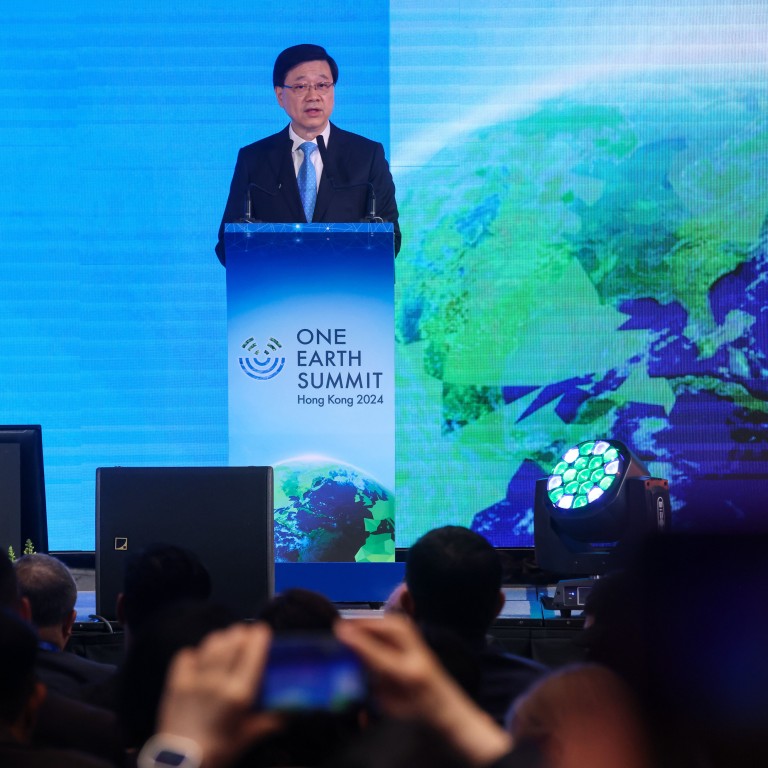
Hong Kong has role to play in tackling climate crisis
- City’s businesses will be required to meet international standards on sustainability, but this will require funding from both the public and private sectors
The world will need US$3 trillion in private and public funding annually to fight climate change if we are to achieve net-zero greenhouse emissions, reverse nature loss and restore biodiversity by 2050, the World Economic Forum (WEF) says.
Some of that will need to come in the form of sustainable financing from lenders, which requires companies to detail their net-zero carbon emission plans.
To facilitate that, Hong Kong aims to be among first movers globally to require companies to match their sustainability disclosures to International Sustainability Standards Board (ISSB) benchmarks.
The development offers an important way for businesses to join the front against climate change.
Secretary for Financial Services and the Treasury Christopher Hui Ching-yu told the inaugural One Earth Summit that the city would produce a road map within the year for a transparent, well-defined pathway on sustainability reporting for business.
One Earth Summit: Hong Kong aims to rapidly align with global disclosure rules
For disclosure and sustainability efforts to be truly effective requires everyone to adhere to the same clear, high-quality standards. Once those exist, businesses can bake them into regular operations and scale to help meet climate change head on.
Last year, the Hong Kong stock exchange proposed listed firms make ISSB-inspired climate-related disclosures in ESG reports from 2025.
It is hoped that momentum will build and the rest of Asia soon follows suit. The region produces half the world’s greenhouse gas emissions and thus is on the front lines in fighting global warming.
It helps that Asia also plays host to a younger population – 60 per cent of the world’s youth – who are being handed this crisis by previous generations but are “hungry to find solutions”, says Gim Huay Neo, managing director of the WEF’s Centre for Nature and Climate.
Asia also hosts the world’s five biggest science and technology hubs including Hong Kong, Shenzhen and Guangzhou. But advances that can help tackle the crisis will require proper market mechanisms, financing instruments and partnerships, Neo says.
The hard work to repair the world’s climate must gather steam now. Adopting clear global standards for sustainability disclosure, and eventually new standard sustainable financing guidelines, will help provide the funding so desperately required to make it happen.

